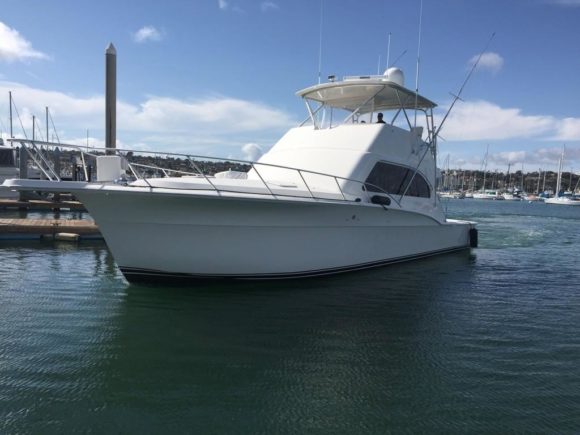A federal appellate court ruled Tuesday that insurers are entitled to a strict interpretation of a doctrine in maritime law that imposes a duty of “utmost good faith” on parties to marine insurance contracts.
The 1st Circuit Court of Appeals panel found that the owner of a 48-foot yacht had no coverage for damage caused by a fire on his vessel because he had failed to disclose a prior accident or other boats that he had owned on his application for insurance. The court affirmed a ruling by the U.S. District Court in Puerto Rico that “uberrimae fidei” still holds in U.S. admiralty law even though Parliament abolished the doctrine from English law in 2015.
“The respect accorded by American courts to English maritime law stems from the wisdom of the particular doctrine, not from either the acceptance or the rejection of that doctrine by Parliament,” the court said. “It follows, we think, that federal courts tasked with hearing admiralty cases should take heed of developments in English law, but they are not obliged to change course merely because Parliament acts to alter a previously entrenched principle.”
In March 2014 Carlos Morales-Vázquez applied to Optima Insurance Co. for insurance to cover “Making Waves,” his 48-foot Cavileer yacht, built in 2005, valued at $550,000. He disclosed on the application that 11 years earlier he had had a “propeller strike” accident, but he did not mention that in 2010 he had grounded his 40-foot Riviera Offshore yacht in Fajardo, Puerto Rico.
What’s more, Morales listed on a separate section of the application only two of the seven boats that he had previously owned or operated. The application form plainly stated that “if incorrect answers are provided (either by error, omission or neglect), I will be in breach of this warranty and the policy, if issued, will be void from inception.”
Morales submitted the application to his insurance broker and told him he needed coverage immediately. A policy was issued 36 minutes later. QBE Seguros later purchased Optima and became Molares’ insurer.
On Oct. 24, 2014, Morales’ Cavileer was damaged by a fire. He reported the loss to QBE. The carrier retained an independent adjuster and in December 2014 offered to pay $63,774.19 for the damage. Morales rejected the payout.
Negotiations continued until May 2015, when QBE became aware of the 2010 grounding incident, which had resulted in a total loss. Morales admitted when testifying under oath that he had failed to disclose the accident and also that he had owned five other vessels that he had not disclosed on his insurance application.
QBE filed suit, seeking a declaratory judgment that the policy was void because Morales had not honored his duty of utmost good faith. After a six-day bench trial, Magistrate Judge Bruce J. McGiverin ruled in favor of the insurer. He said the case was “a poster child for the continuing relevance of the doctrine.”
On appeal, Morales argued that the principle of uberrimae fidei no longer applies because the United Kingdom Parliament and striken the duty from English statutes when it passed the Insurance Act of 2015. U.S. Supreme Court precedent requires, because the doctrine was adopted from English common law, that U.S. courts should mirror developments in English law, Morales’ attorney said.
The 1st Circuit called that argument “magical thinking.” The panel said the three Supreme Court cases that Morales cited actually establish that there is a general “desirability of uniformity” between American and English law regarding maritime insurance, but U.S. courts do not have to automatically follow “English precedents hawked by the insured.”
“At any rate, abandoning the doctrine of uberrimae fidei in marine insurance cases would have rebarbative consequences, both upending settled law and disrupting an industry that has long been premised on insureds telling the whole truth to insurers,” the court said.
Was this article valuable?
Here are more articles you may enjoy.


 Hackers Hit Sensitive Targets in 37 Nations in Spying Plot
Hackers Hit Sensitive Targets in 37 Nations in Spying Plot  US Will Test Infant Formula to See If Botulism Is Wider Risk
US Will Test Infant Formula to See If Botulism Is Wider Risk  Canceled FEMA Review Council Vote Leaves Flood Insurance Reforms in Limbo
Canceled FEMA Review Council Vote Leaves Flood Insurance Reforms in Limbo  FM Using AI to Elevate Claims to Deliver More Than Just Cost Savings
FM Using AI to Elevate Claims to Deliver More Than Just Cost Savings 